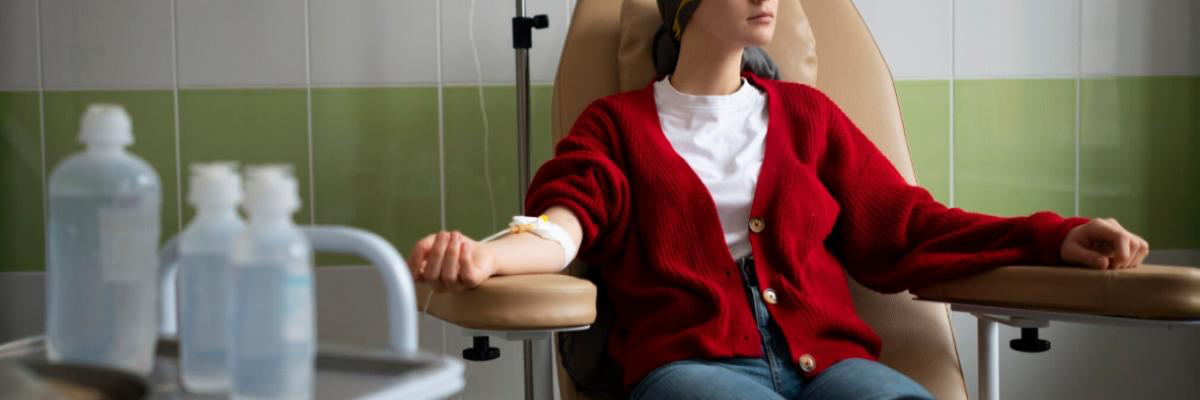While dialysis is a life-sustaining treatment for kidney failure, it can come with a range of challenging physical responses. Understanding and managing dialysis side effects is a crucial part of your care journey, helping to improve your comfort and overall quality of life. Many patients experience issues such as muscle cramping, profound fatigue, and low blood pressure (hypotension), particularly during or after a treatment session. This guide provides detailed information and practical strategies to help you navigate these common side effects in partnership with your healthcare team.
At Doral Health & Wellness, we are proud of our commitment to providing integrated, interdisciplinary health services in our innovative medical facility. Our expert nephrologists offer trusted medical treatments and personalized guidance to help you manage every aspect of your dialysis care with confidence. We invite you to connect with us for comprehensive and supportive kidney care.
Understanding Common Dialysis Side Effects
The process of dialysis involves significant fluid and electrolyte shifts in a short period, which can lead to various side effects. Open communication with your care team is the most effective way to address these challenges. A nephrologist can adjust your treatment prescription to minimize discomfort and improve your tolerance.
Low Blood Pressure (Hypotension)
Hypotension is one of the most frequent complications during hemodialysis. It occurs when too much fluid is removed too quickly from the body, causing a sudden drop in blood pressure.
Symptoms of low blood pressure may include:
- Dizziness or lightheadedness
- Nausea and vomiting
- Blurred vision
- Cold, clammy skin
- Fainting
Management Strategies:
- Adherence to Fluid Restrictions – Sticking to your prescribed daily fluid limit is the most important preventive measure. Gaining less fluid weight between treatments means less needs to be removed during dialysis, reducing the risk of hypotension.
- Medication Adjustment – Your doctor may advise you to avoid taking blood pressure medication on dialysis days or adjust the timing. Never make changes to your medication schedule without consulting the best kidney doctor for your care.
- Treatment Adjustments – Your clinical team can slow the rate of fluid removal or administer saline to help raise your blood pressure during treatment.
Muscle Cramps
Painful muscle cramps, especially in the legs and feet, are another common side effect. These are often linked to the rapid removal of fluid and shifts in electrolytes like sodium and potassium.
Management Strategies:
- Stretching – Gentle stretching of the affected muscle during a cramp can provide immediate relief.
- Proper Fluid Management – Similar to preventing hypotension, avoiding large fluid gains between sessions can reduce the incidence of cramping.
- Warm Compresses – Applying a warm, moist towel or heating pad to the cramping muscle may help it relax.
- Dialysis Prescription Review – Your nephrologist may be able to adjust the sodium concentration in your dialysate (the cleaning fluid) to help prevent cramps. A “nephrology doctor NY” can provide an expert evaluation of your prescription.
Fatigue
Feeling exhausted after a dialysis session, often called “washout,” is extremely common. This profound fatigue can last for several hours and significantly impact your daily activities. The exact cause is complex but is related to the treatment process, underlying kidney disease, and anemia.
Management Strategies:
- Plan for Rest – Schedule a period of rest or a nap immediately following your treatment. It is important to listen to your body and not overexert yourself.
- Anemia Management – Anemia (a low red blood cell count) is a primary cause of fatigue in dialysis patients. Your care team will monitor your hemoglobin levels and may prescribe iron supplements or erythropoiesis-stimulating agents (ESAs) to help your body produce more red blood cells.
- Nutrition and Exercise – A well-balanced diet and a regular, gentle exercise program (as approved by your doctor) can boost energy levels over time. Finding the “best nephrologist near me” will give you access to a team that includes dietitians and physical therapists.
Proactive Steps for Better Treatment Tolerance
Beyond managing side effects as they occur, you can take proactive steps to improve your overall experience with dialysis. This involves working closely with your entire healthcare team and taking an active role in your own care. Searching for “nephrology near me” is an excellent way to find a comprehensive local clinic.
Key proactive measures include:
- Consistent Communication – Always inform your nurses and technicians how you are feeling during treatment. They can make immediate adjustments to help you.
- Dietary Adherence – Following your renal diet is critical. Proper management of potassium, phosphorus, and sodium intake helps maintain chemical balance in your body, reducing the risk of complications.
- Review Your Medications – Periodically review all your medications, including over-the-counter drugs and supplements, with your nephrologist to ensure they are not contributing to side effects.
Your Partner in Advanced Kidney Care
Living with dialysis requires adapting to a new routine and managing the associated physical challenges. While dialysis side effects like hypotension, cramps, and fatigue are common, they can be effectively managed with a collaborative approach. By adhering to your treatment plan, communicating openly with your care team, and making informed lifestyle choices, you can significantly improve your comfort and maintain your quality of life throughout your treatment journey.
For expert and compassionate kidney care in the East New York community, trust the specialists at Doral Health & Wellness. Our dedicated team provides cutting-edge dialysis services and comprehensive medical support to help you navigate your treatment with confidence. To schedule a consultation with the best kidney doctor and create a plan to manage your side effects, contact Doral Health & Wellness today at 1-718-365-2555 or visit us at 1797 Pitkin Avenue, Brooklyn, New York 11212. For general information about Doral Health & Wellness services, you can contact or email info@doralhw.org.






